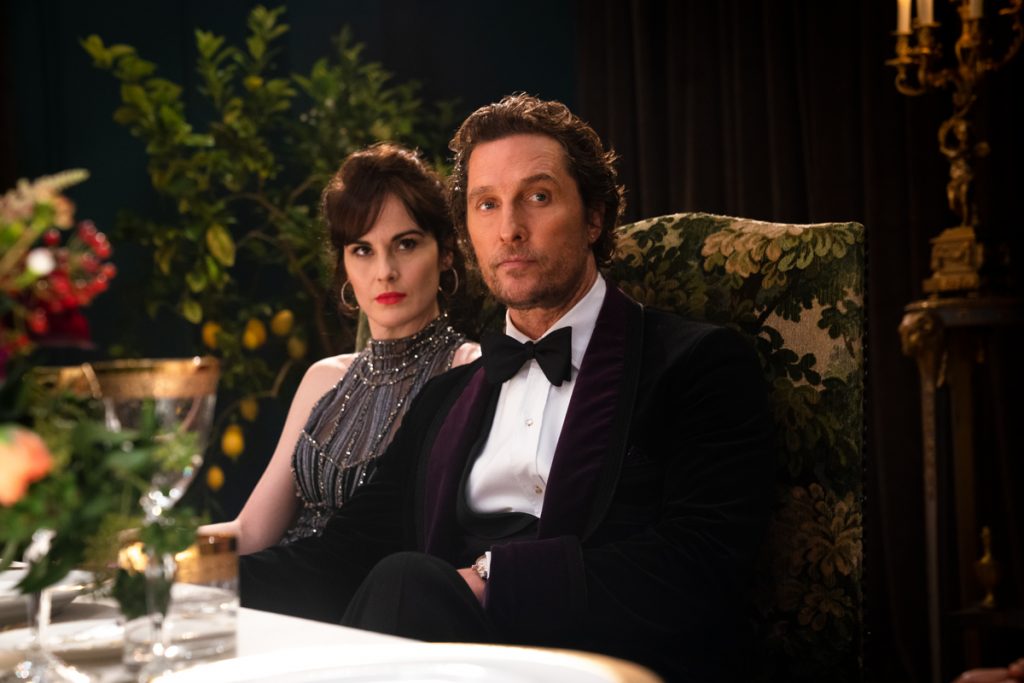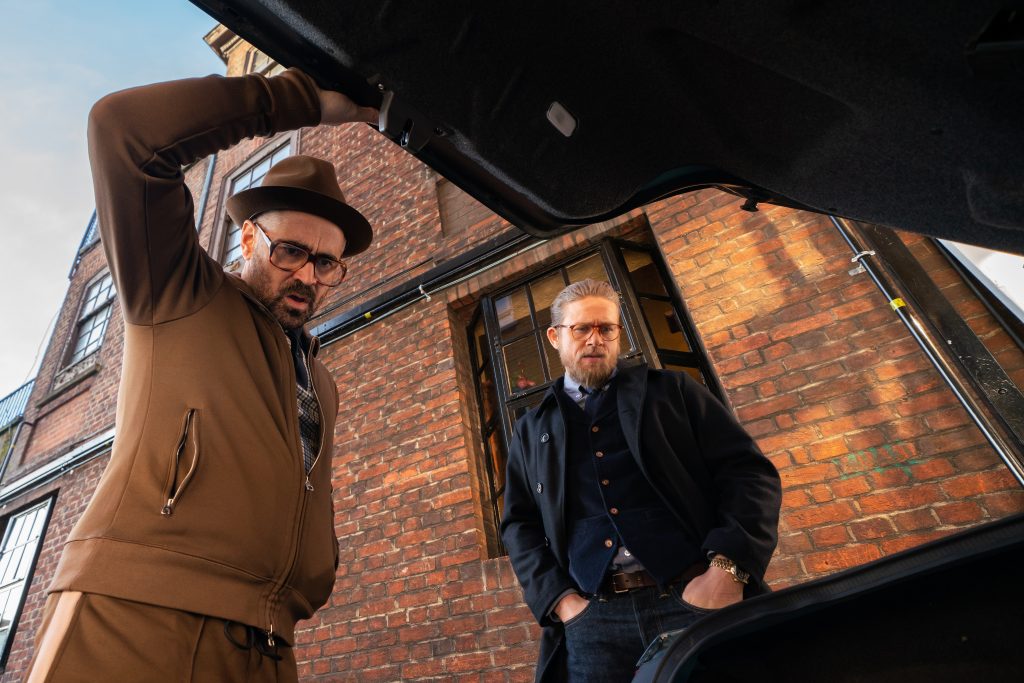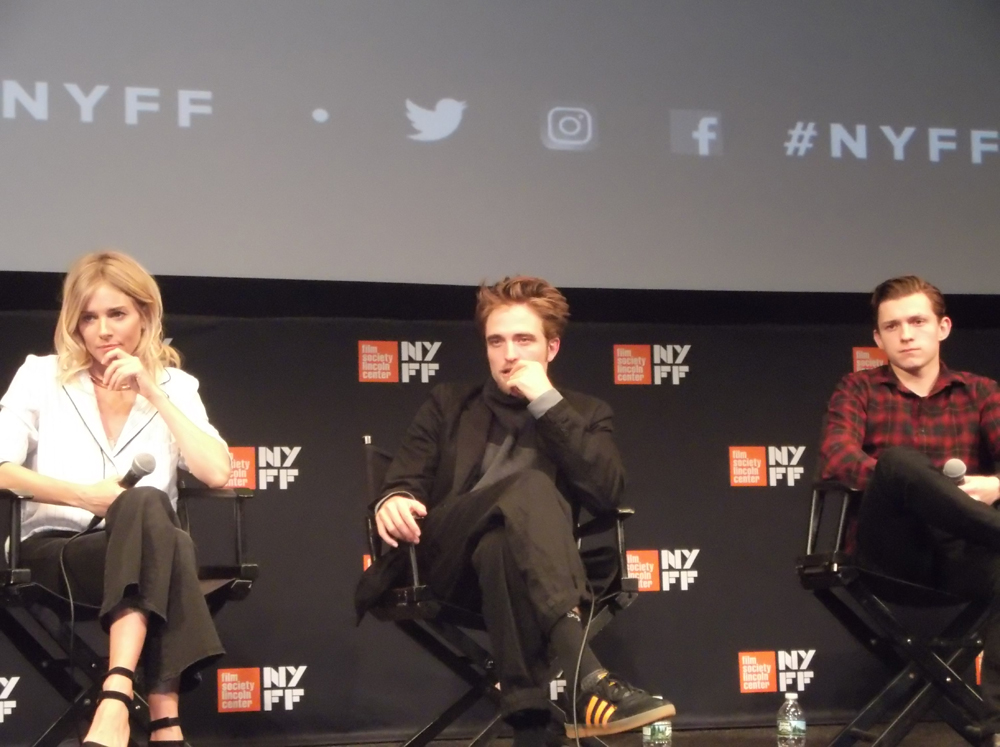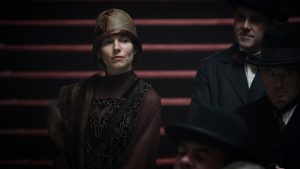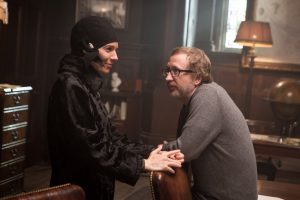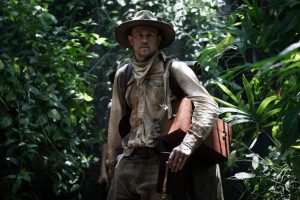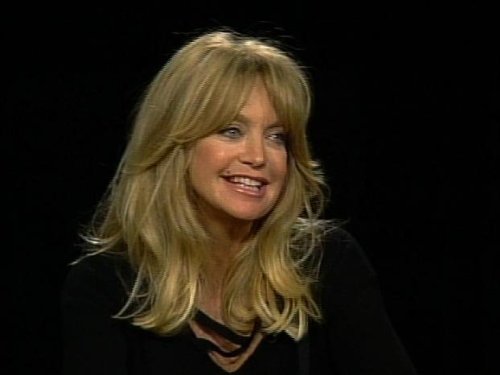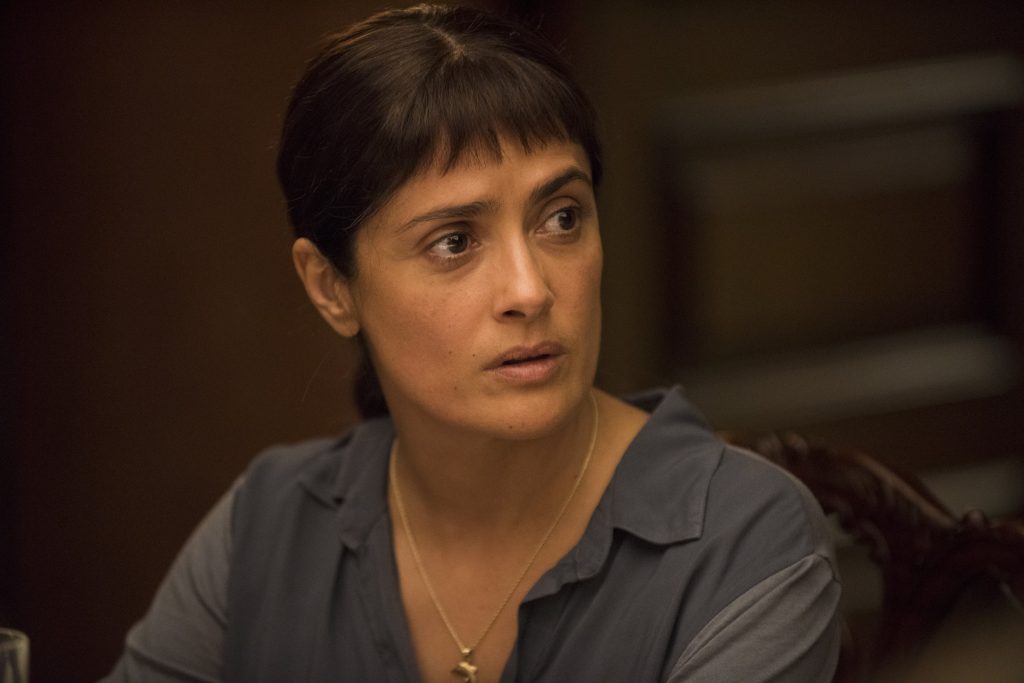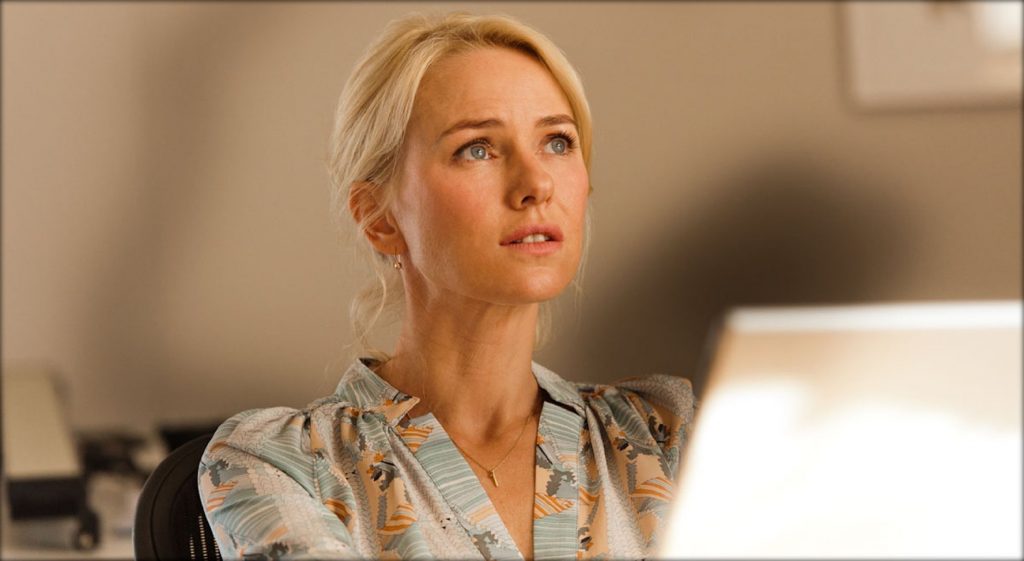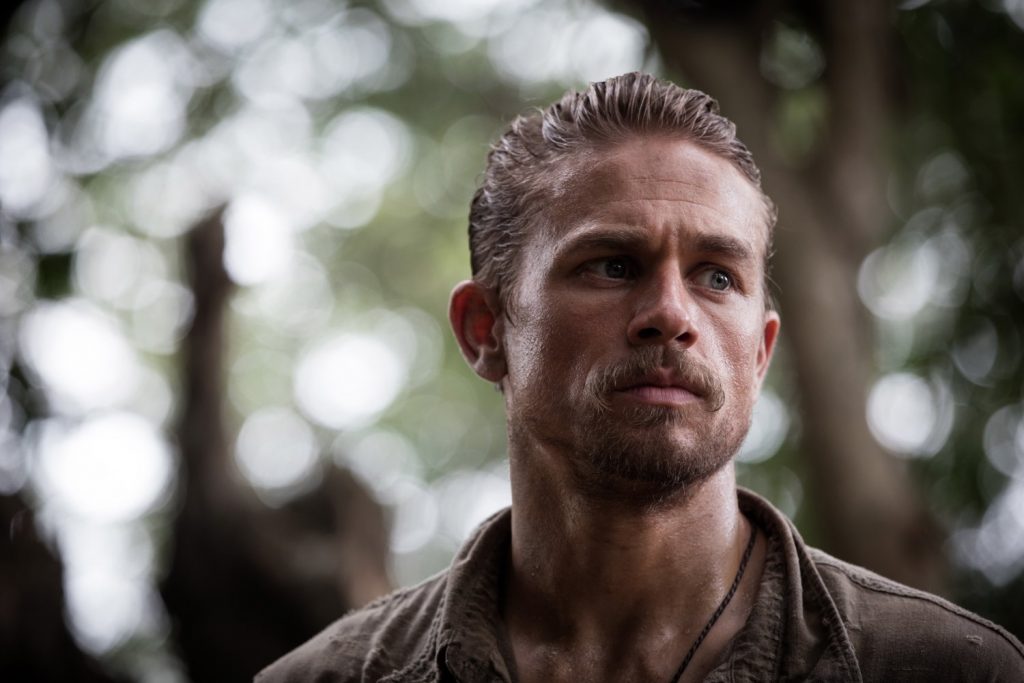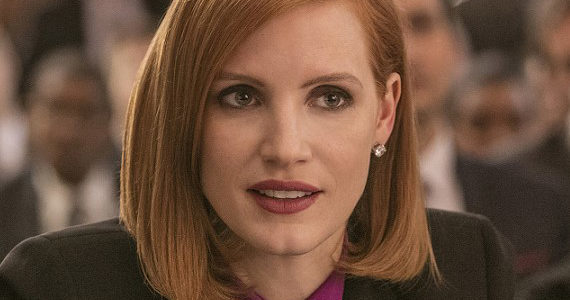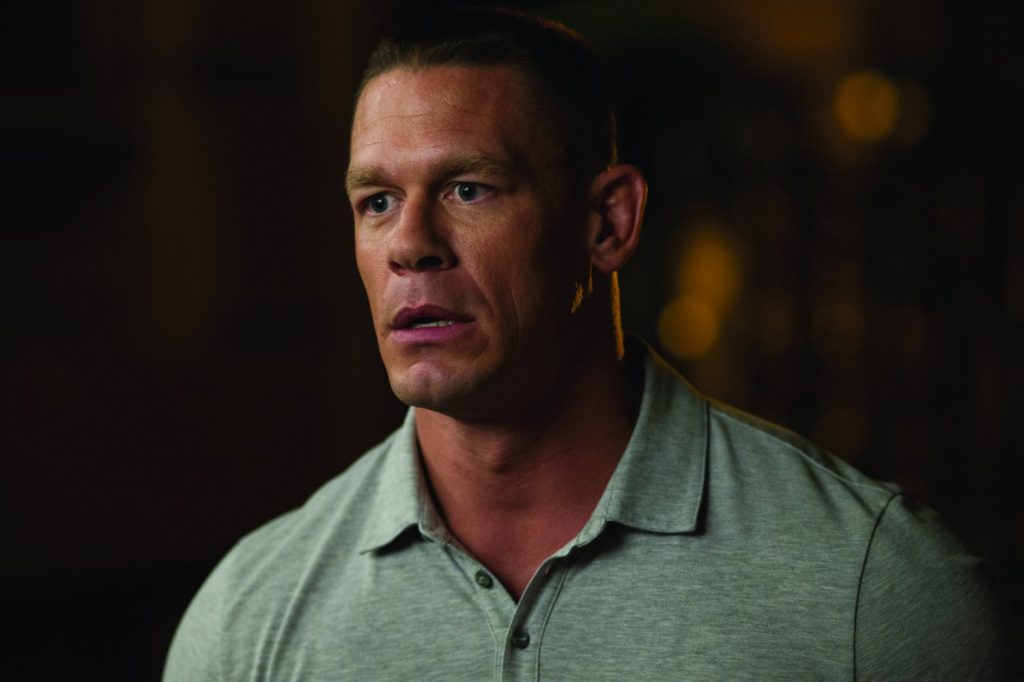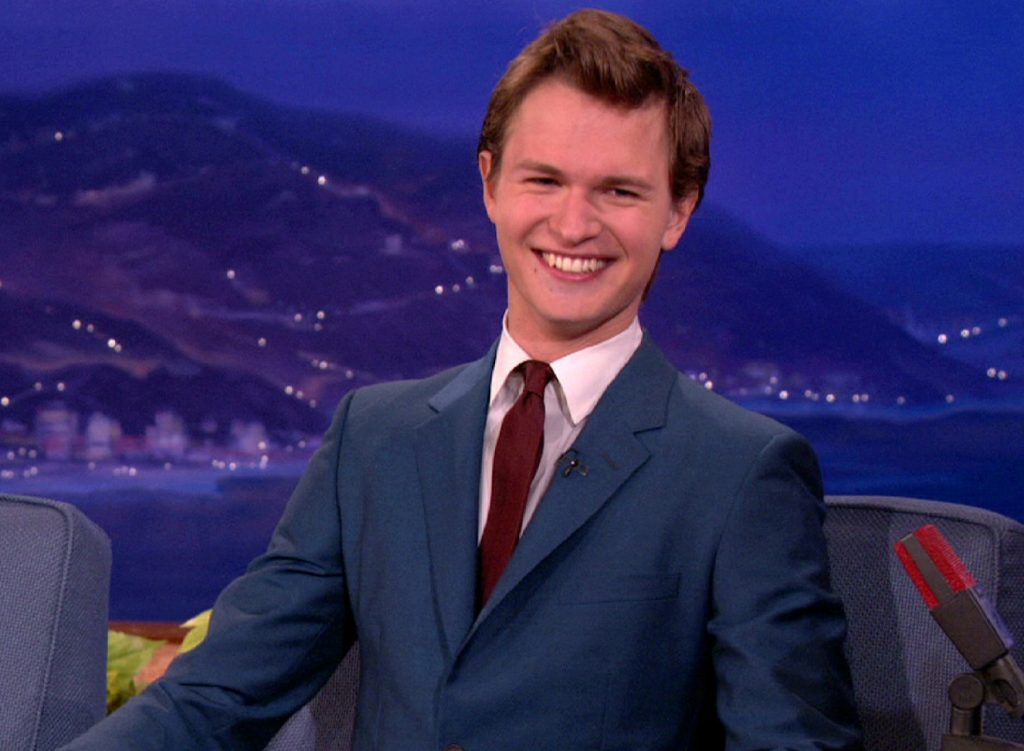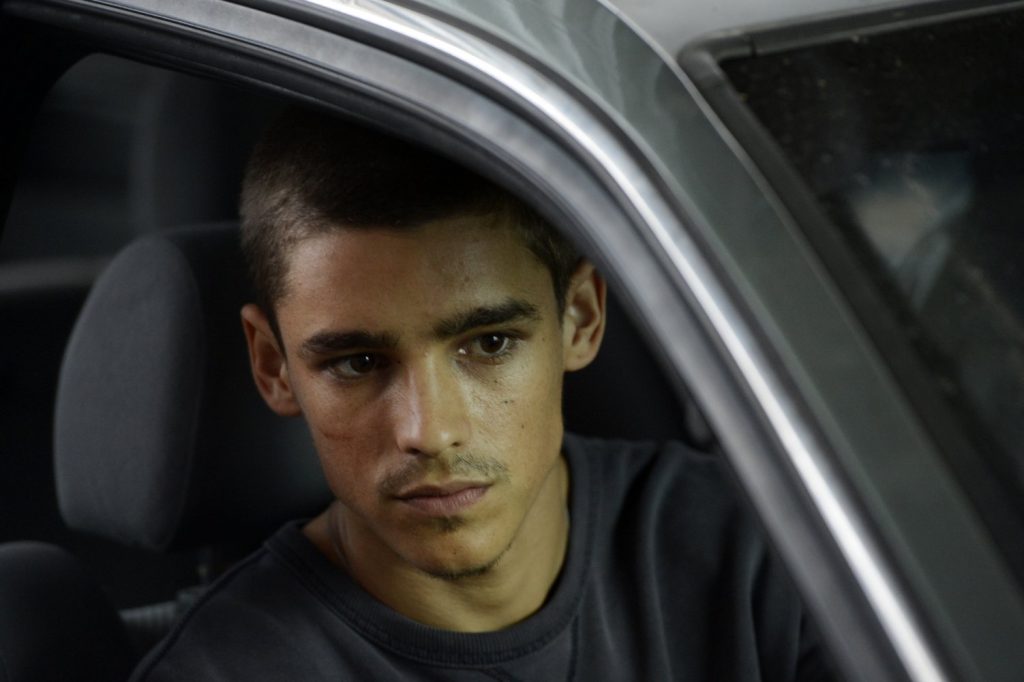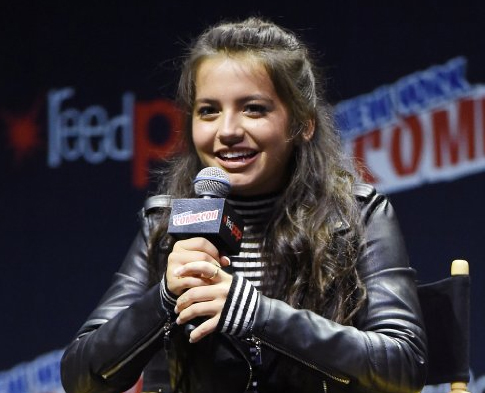December 2, 2020
by Carla Hay

Directed by Max Winkler
Culture Representation: The dramatic film “Jungleland” features a predominantly white cast of characters (with a few African Americans and Asians) representing the working-class and middle-class.
Culture Clash: In order to pay off a debt, two brothers who are involved in the world of underground bare-knuckle boxing are forced to go on a road trip with an unwilling young woman, so that the brothers can bring her to a crime lord.
Culture Audience: “Jungleland” will appeal primarily to people who like well-acted stories about hard-luck individuals and the sleazy things that they do to survive, but viewers have to be willing to tolerate how this movie can sometimes be too slow-paced and unfocused for its own good.

Don’t be fooled into thinking that the dramatic film “Jungleland” (directed by Max Winkler) will be packed with a lot of action-oriented boxing scenes. Boxing is not the primary focus of this movie, which is really a road-trip film about two tight-knit American brothers coming to terms with their co-dependency on each other. Their relationship might be permanently changing as one brother tries to become more independent from the other. It just so happens that the two brothers are involved in some shady criminal activities, so there’s an added “race against time before we get killed” aspect of the story.
The two working-class brothers at the center of the story are Stanley “Stan” Kaminski (played by Charlie Hunnam) and Walter “Lion” Kaminski (played by Jack O’Connell), who spent most of their childhood as orphans growing up in various parts of America. Their deadbeat father abandoned them as children, and they spent part of their childhood raised by a single mother, who died when Stan and Lion were underage. In the movie, Lion says that he’s 25, while Stan (whose age is not mentioned) looks like he’s in his late 30s. They only have each other as family.
When this story takes place, the Kaminski brothers are living together in a run-down house in Fall River, Massachusetts. They both work at a sweatshop-styled fabric sewing factory, where their job is to do things like sew bedsheets. And they have dreams of being rich some day, which Stan constantly talks about when he fantasizes out loud to Lion about all the walk-in closets full of silk suits that he would like to have.
Stan is supposedly a dedicated follower of high fashion, but you’d never know it because he looks and acts like a scruffy rogue. That doesn’t mean he has to look “rich” (because he’s not), but Stan doesn’t even seem to care about looking like he has good hygiene. Later in the movie, it’s revealed that the brothers have been sort-of planning to open a dry-cleaning business together. Their “business plan” is literally a photo collage that looks like something a 9-year-old child would do as an art project, which is an indication of how little these brothers know about business. Keep in mind, this is a drama, not a comedy.
Because he’s the older brother, Stan takes on the “alpha male” leadership role in their relationship, while Lion is the “beta male” follower. Stan is a big talker who likes to come up with “get rich quick” schemes, while Lion just passively goes along with whatever Stan wants. However, even though Stan comes up with ideas, he’s not that smart in making any of these ideas beneficial to him and his brother. Stan’s ill-fated schemes have landed the brothers in debt to a local criminal named Pepper (played by Jonathan Majors), who is the type of thug who likes to be smooth but menacing.
Lion has raw talent as a boxer, and Stan is his coach. Lion and Stan like to growl at each other like lions as a way of getting Lion psyched up before a boxing match. It’s revealed later in the story that Stan tried to bribe a referee in the past, so he lost his license to train boxers. Stan still has dreams of Lion making it big as a boxer. Until they can make it to the big leagues, Stan has been putting Lion in underground bare-knuckles boxing matches that don’t really pay enough to get the brothers out of their dire financial situation.
After one of these matches, which ends with Lion losing by getting pummeled by a man who’s about 20 years older than Lion, the brothers find themselves accosted and essentially kidnapped by Pepper and one of Pepper’s henchman. Pepper has grown impatient with the brothers for not paying their debt. Stan and Lion both get roughed up a little until they agree to do whatever Pepper wants.
Pepper tells Stan and Lion that the only way they can erase the debt is to do two things: (1) Enter and win a boxing match called Jungleland, which has a grand prize of $100,000, and (2) Take a young woman named Sky with them on their road trip to Reno, Nevada (where Jungleland takes place), and deliver her to a pet store. Pepper gives them a business card for the store. Why a pet store? That’s explained much later in the story.
Lion is very reluctant to go along with the plan, but Pepper says, “You’ve got no choice.” Stan asks Pepper if this task of transporting Sky is some type of human trafficking. All that Pepper will tell them is that Sky is a “family friend” who “can be a handful.”
When Stan and Lion meet this mysterious Sky (played by Jessica Barden), she is very guarded and aloof. She doesn’t really want to talk about herself at first. Sky is in her early 20s (she’s able to buy alcohol at a bar later in the story), but she looks like she could be 16 or 17. Even though Sky isn’t very talkative, one thing that she does make clear to Stan and Lion is that she doesn’t want to go on this trip. As an incentive, Pepper gives them quite a bit of cash and a fairly new-looking SUV to take on the journey.
The Kaminski brothers soon find out why Pepper made Sky a part of this road trip. She’s been hiding from a crime lord named Yates, who wants Sky brought back to him in Reno, where he lives. Pepper was supposed to complete this task, but he’s now handed off that responsibility to Stan and Lion, who are both furious when they find out that they’ve been tricked into doing Pepper’s dirty work. However, there’s no turning back from the road trip. Stan is convinced that he and Lion will be killed if they don’t fulfill their end of the bargain.
Stan decides that Sky cannot be let out of their sight, so he tells Lion to keep watch over Sky when Stan can’t do it, such as while Stan is asleep or not in the same room. Also along for the ride is Stan and Lion’s whippet dog named Ash. Stan senses that Lion and Sky are immediately attracted to each other, and he orders Lion not to let Sky tempt or distract him. Easier said than done.
Throughout this road trip, which sometimes wanders off into tangents that drag the film down, Lion and Sky become more attracted to each other. She tells Lion that he doesn’t need to be bossed around by Stan, and she encourages Lion to think for himself. Sky also makes Lion see that Stan tends to do a lot of impulsive things that end up making things worse for the two brothers—not just on this road trip but as a pattern throughout the brothers’ recent lives. And during this road trip, more of Sky’s past is revealed, including a secret that explains why Yates wants her in his custody.
“Jungleland” director Winkler co-wrote the movie’s screenplay with Theodore Bressman and David Branson Smith. The screenplay could’ve used some definite improvements, because some parts of the road trip don’t make sense, according to the “race against time” aspect that is supposed to be a big part of the story. For example, if it was so urgent for Sky to be brought to Yates from Massachusetts to Nevada, they could’ve taken the trip by plane, which is faster and more convenient than driving by car.
But that would mean there would be no “Jungleland” movie, since the road trip is contrived so that all sorts of things can go wrong along the way. And they do. A big foreshadowing is when, at the beginning of the trip, Stan impulsively decides to blow a lot of the cash by splurging on the highest-priced suite available at the hotel that he chooses for himself, Lion and Sky. But when they get to the suite, they find out that there’s only one bed, because it’s meant to be a honeymoon suite. It’s an example of how Stan doesn’t plan and think things through very well.
There are also parts of the movie where it doesn’t look like Stan and Lion are really in that big of a rush to get to Reno, even though a lot of time is lost because of some unfortunate things that slow down the trip by at least three days. With that sense of urgency lost, the movie tends to wander into different directions that sometimes don’t really add anything to the story. It just seems like these unnecessary scenes are filler, because the screenwriters couldn’t think of anything better to increase the length of the movie’s total running time.
For example, Stan, Lion and Sky break into her former high school when no one else is there, for reasons that are shown in the movie but won’t be revealed in this review. But even then, that part of the story is questionable, because the trio ends up spending the night at the school, without any concern that school employees will show up in the morning and discover these three intruders. Even when a school is on hiatus (such as during the summer), there are still employees who work at the school to look after it.
And as for any intense training for this big Jungleland fight, forget about it. There are so many mishaps and shenanigans that happen to this trio on the road trip that Stan and Lion barely have time to do any training, except when they use the gym at the high school during their break-in. The Jungleand fight really takes a back seat to some messy drama involving Sky. It isn’t until the last few scenes of the movie that the Jungleland fight comes back to the forefront of the storyline.
What makes “Jungleland” worth watching, despite the flaws in the screenplay, is that Hunnam, O’Connell and Barden give very good performances as these troubled souls who have been thrown together in very tension-filled circumstances. Each of these actors shows some emotional depth to the insecurities that each characters has. Lion is questioning his identity as an individual and how he might have been living under the control of his brother for too long. Sky is running away from her past in more ways than one.
Stan likes to be in control of Lion, but deep down he’s envious of Lion because Lion has one thing that Stan doesn’t have: talent in doing something well. Stan tells Sky when they’re alone together how he feels about Lion: “That kid is better at fighting than I’ve ever been at anything in my life … He’s special, and I’ll never know what it’s like.”
In real life, Hunnam, O’Connell and Barden are British. Out of the three, Barden fares the best in mastering an American accent. (People watching this movie might be surprised to find out that she’s British in real life.) O’Connell’s American accent is also believable, but Hunnam’s natural British accent can occasionally be heard when he says some of his lines in the movie.
“Jungleland” is fairly adequate for its cinematography and production design. And the filmmakers try not to make this a completely boring and stereotypical “desperate people in debt to gangsters” movie. For example, the character of Yates (played by John Cullum) is not what a lot of viewers will expect for a crime lord. Boxing fans will probably be disappointed at how few boxing scenes there are in the movie. To use a boxing analogy, “Jungleland” doesn’t deliver a knockout punch as a compelling drama, but it brings out enough emotionally impactful jabs from the main actors to make an impression on viewers.
Paramount Pictures released “Jungleland” in U.S. cinemas on November 6, 2020, and on digital and VOD on November 10, 2020. The movie’s DVD release date is January 12, 2021.

